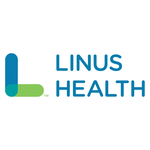Results from New Studies Support Role of Digital Tools in Streamlining Dementia Detection; Findings to be Revealed at American Academy of Neurology’s Annual Meeting

Linus Health to present new findings on accuracy and reliability of tech-enabled cognitive assessments
BOSTON–(BUSINESS WIRE)–#alzheimers—Linus Health, a digital health company focused on early detection of Alzheimer’s and other dementias, today announced the results of two new studies that further demonstrate the ability of digital cognitive assessments to identify early signs of cognitive impairment and dementia. The findings, which researchers will present at the American Academy of Neurology’s (AAN) 75th Annual Meeting, show that digital, AI-enhanced assessments can play a major role in helping providers efficiently assess older patients’ cognitive function and intervene early in the face of issues – a rising need as new treatments targeting early-stage Alzheimer’s disease become available.
Both studies focused on cognitive assessments that primarily evaluate patients’ performance on tasks involving drawing. Drawing tests have long been a proven means of evaluating cognitive function; traditionally administered with pencil and paper, digital alternatives offer a more practical route to expanding cognitive testing in primary care. Leveraging AI, Linus Health’s iPad-based DCTclock™ has been shown to not only offer streamlined administration, but also greater sensitivity than traditional tests in a fraction of the time.
“Our latest research reinforces that the new generation of cognitive assessments not only deliver the benefits of a digital format, but also expands on them by using AI to surface subtle signs of cognitive impairment not visible to the human eye,” said David Bates, PhD, CEO of Linus Health. “Providers and patients alike are looking to Leqembi and future Alzheimer’s drugs with hope and interest, but providers need modern tools to help them efficiently identify and triage people who can benefit from them.”
Building on a rich foundation of existing research, one of the new studies, Reliability of Tablet-Based Digital Clock Drawing Task (DCTclock) for Automated Detection of Cognitive Impairment, further validated DCTclock’s utility as a sensitive, fast, and accurate tool for early detection of cognitive impairment. Focusing on reliability in this study, researchers found that the digital assessment offers good test-retest reliability among both cognitively unimpaired and cognitively impaired individuals, supporting its use in monitoring cognitive health in clinical settings. Researchers will share the full findings at AAN on April 24th during a poster session from 5:30-6:30 p.m. ET.
The second study, Automated Drawing Process Metrics for Evaluating Cognitive Impairment from Human Drawing Behavior, looked at the impact of incorporating the Boston Process Approach (BPA) for neuropsychological testing into additional digital assessments. Already central to DCTclock, AI-enabled BPA analyzes a person’s process of completing tasks, not just the end result, for greater insights into cognitive function. Researchers found that process-based measures were beneficial in distinguishing between individuals with and without cognitive impairment using the four assessments studied; the analysis revealed differences between the groups on key measures like drawing speed and time spent thinking versus drawing or writing. Researchers will present the findings on April 24th during the Innovative Diagnostics in Dementia session from 1:00-3:00 p.m. ET.
“Most individuals with dementia aren’t diagnosed until it is too late for many intervention strategies to make a significant difference,” said Alvaro Pascual-Leone, MD, PhD, Chief Medical Officer at Linus Health and Medical Director of the Wolk Center for Memory Health at Hebrew SeniorLife. “These new studies further show the ability for advanced AI-enabled digital tools to spot the earliest signs of cognitive dysfunction and maximize the available options for patients.”
The AAN Annual Meeting is happening in Boston and online from April 22-27, 2023. If you would like to meet with a researcher involved in these studies, please contact Karina Stabile at kstabile@ariamarketing.com.
About Linus Health
Linus Health is a Boston-based digital health company focused on transforming brain health for people across the world. By advancing how we detect and address cognitive and brain disorders – leveraging cutting-edge neuroscience, clinical expertise, and artificial intelligence – our goal is to enable a future where people can live longer, happier, and healthier lives with better brain health. Linus Health’s digital cognitive assessment platform delivers a proven, practical means of enabling early detection; empowers providers with actionable clinical insights; and supports individuals with personalized action plans. We are proud to partner with leading healthcare delivery organizations, research institutions, and life sciences companies to accelerate more proactive intervention and personalized care in brain health. To learn more about our practical solutions for proactive brain health™, visit www.linushealth.com.
Contacts
Media
Karina Stabile
Senior Account Executive
Aria Marketing for Linus Health
516-317-5835
kstabile@ariamarketing.com
